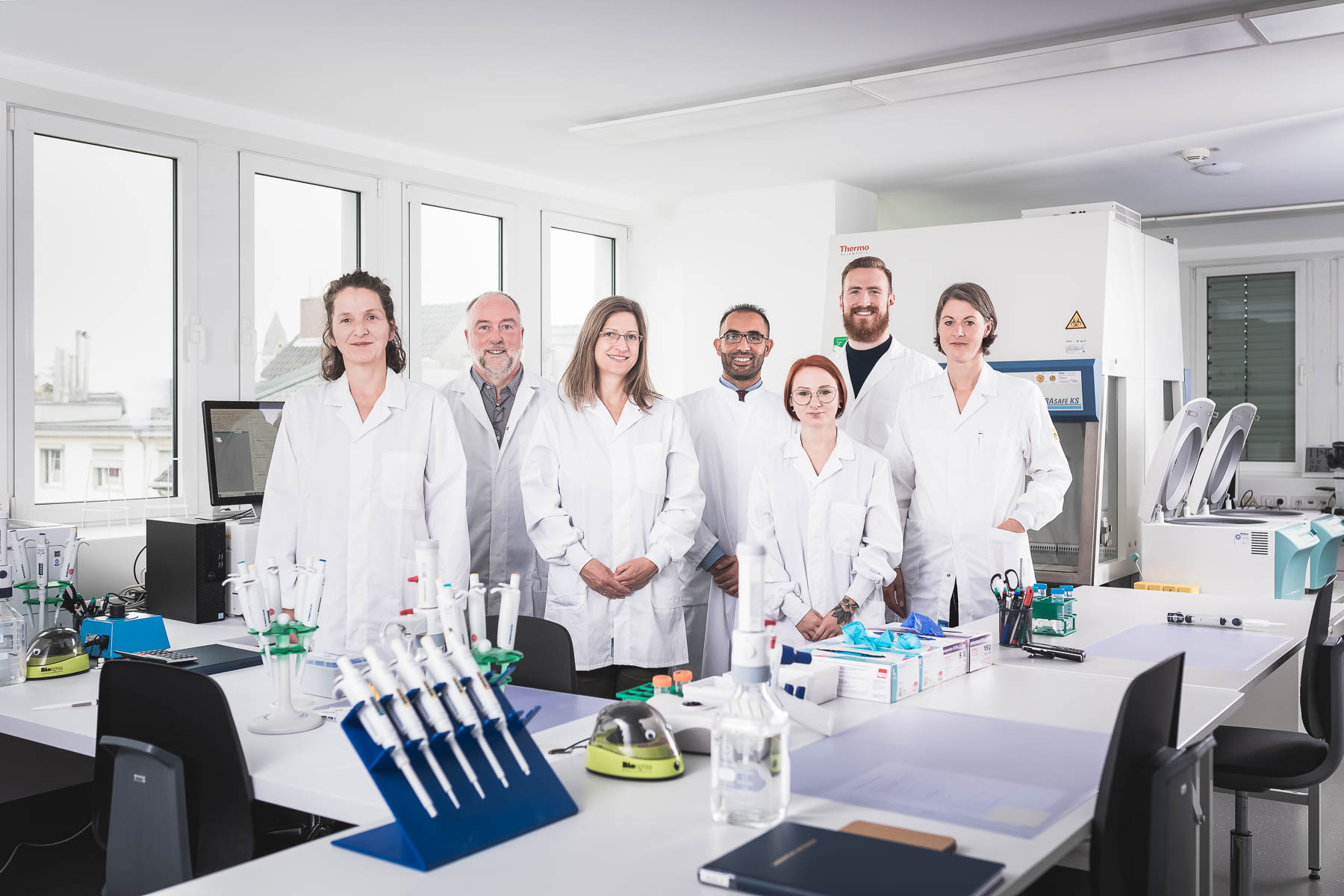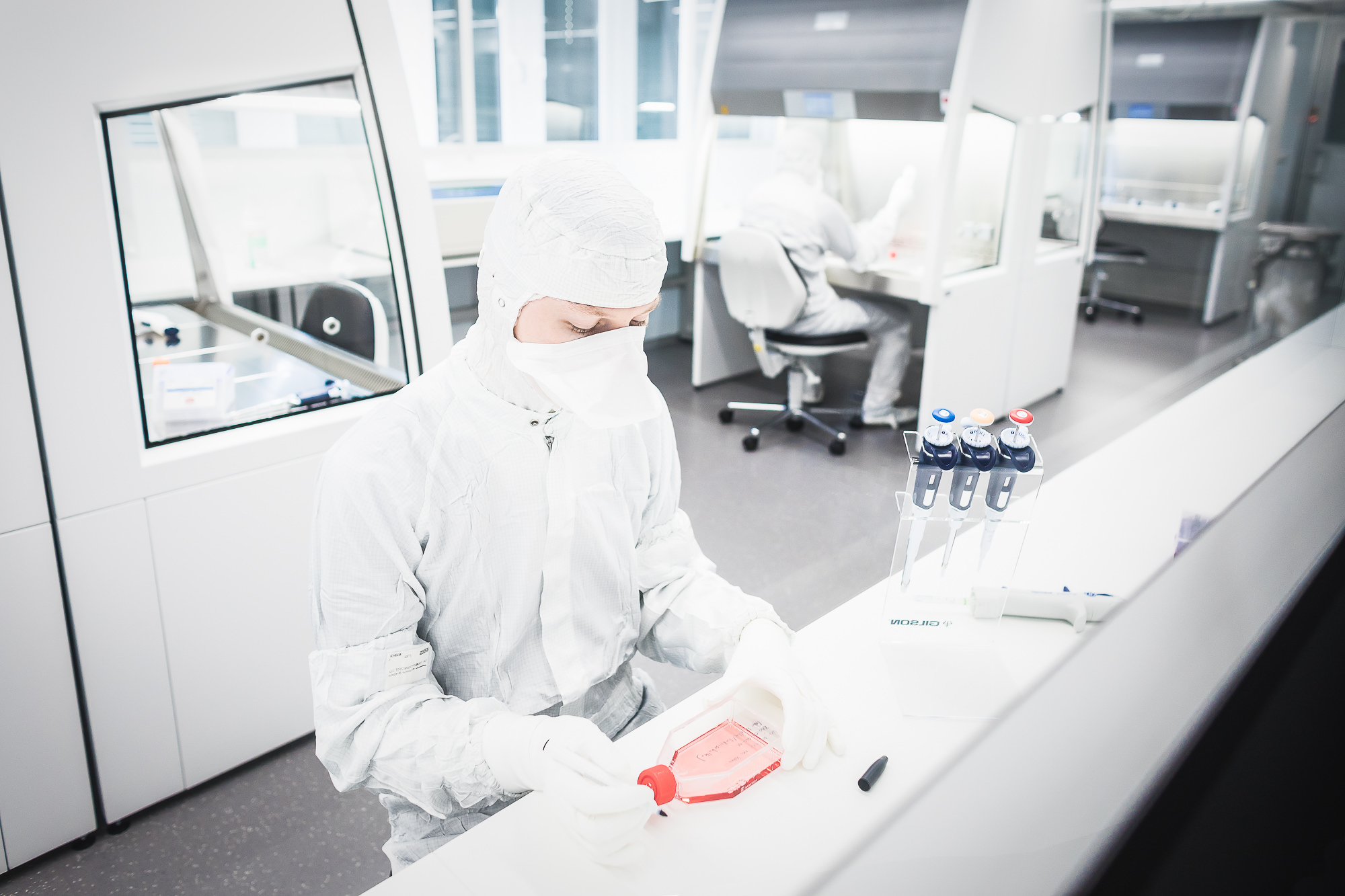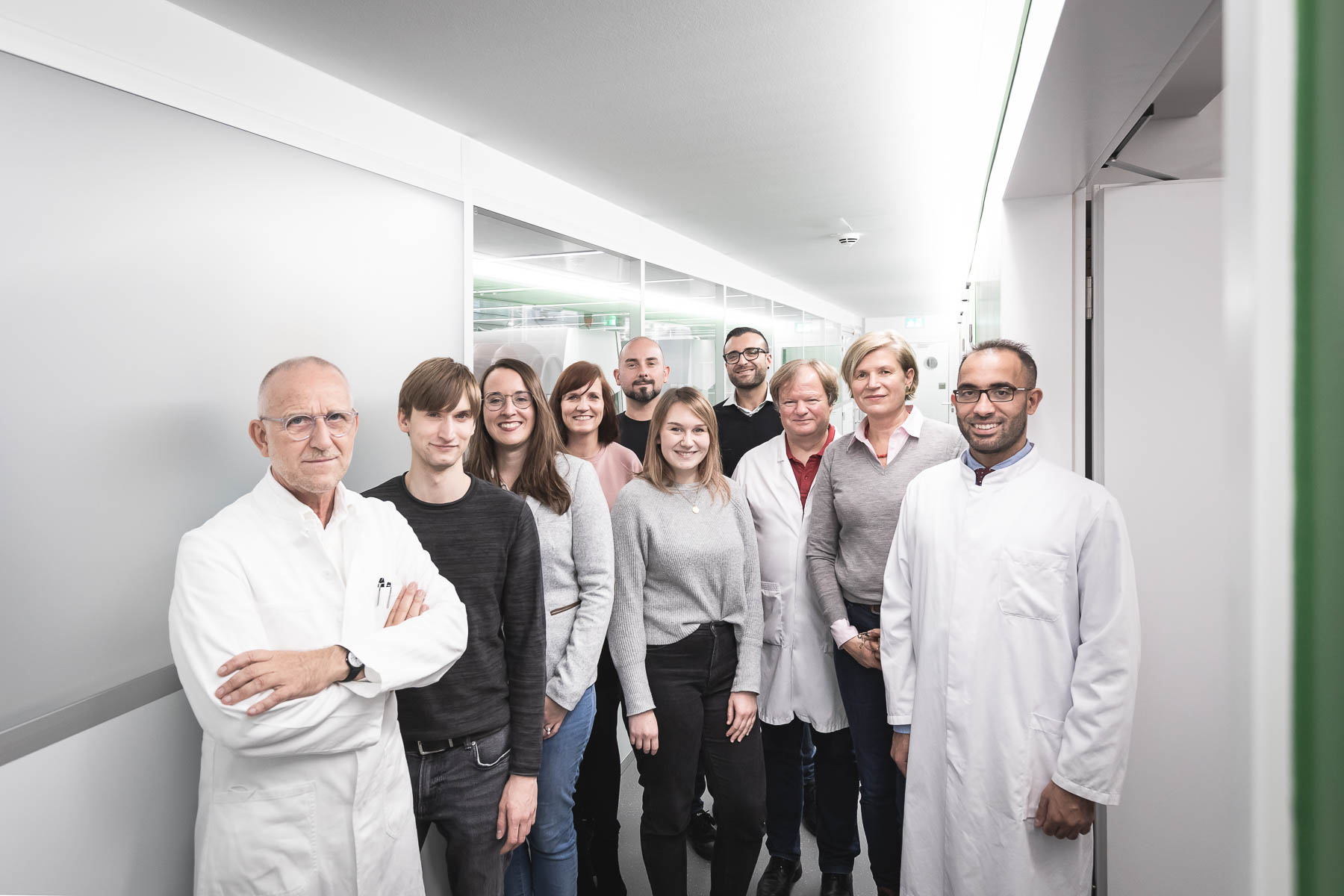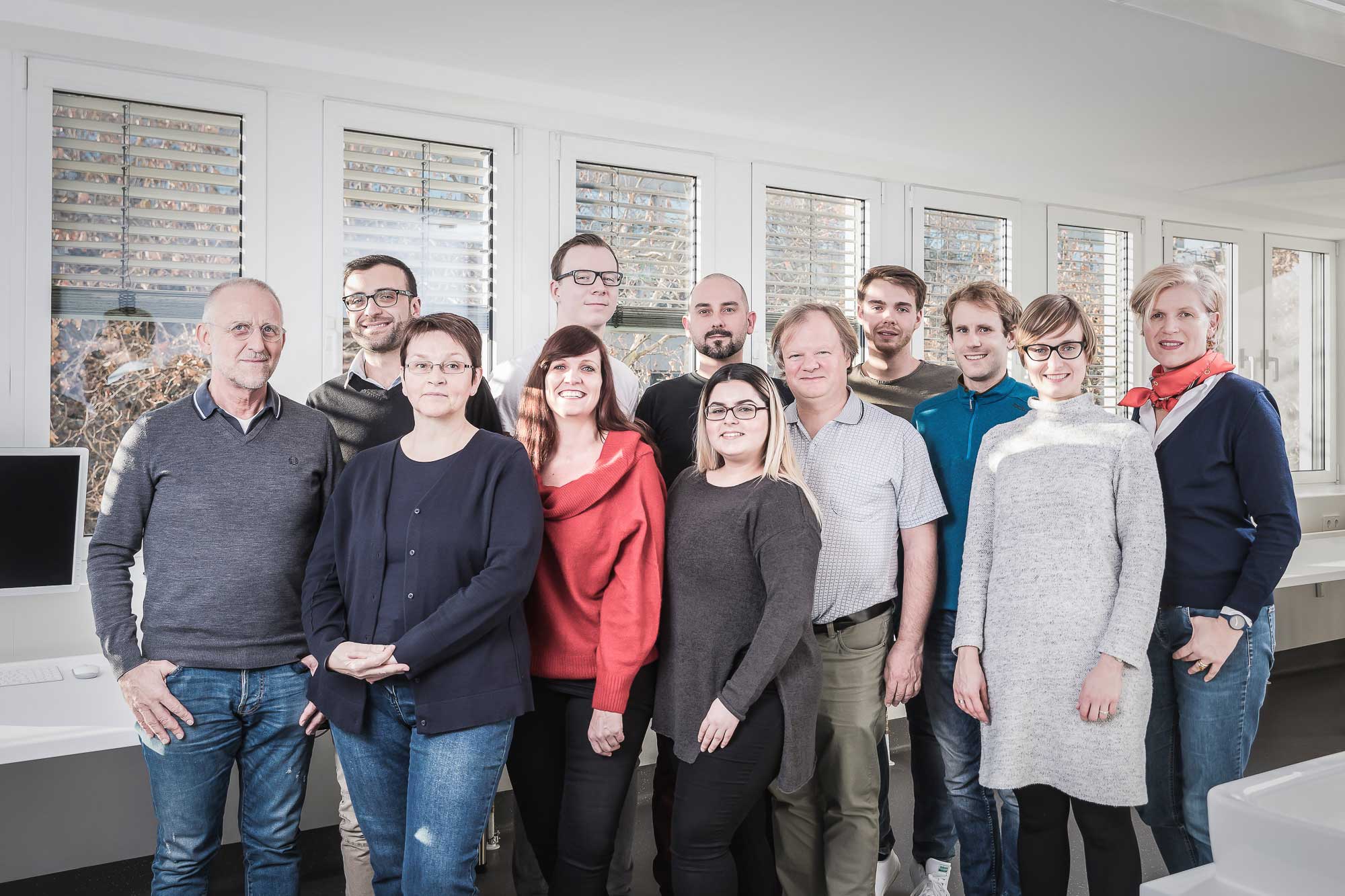The planning and implementation of individualized immunotherapy requires the most precise knowledge possible about the state of the immune system and the characteristics of each patient's tumour. The IOZK diagnostics laboratory can provide this information thanks to complex immunological and molecular genetic analyses of blood samples.
Networking with other research institutions and contributing to scientific discourse (e.g. through publications in international journals, lectures at specialist congresses, etc.) are of great importance to the IOZK. The laboratory therefore enables visiting physicians to work as interns and international scientists to be supervised, e.g. as part of doctoral, master's or bachelor's theses.
Immunodiagnostics
The cells of the immune system have diverse and specific tasks. They are assigned to different groups (e.g. B lymphocytes, T lymphocytes, natural killer cells and many more), which in turn are divided into subgroups (e.g. T helper cells, regulatory T cells, cytotoxic T cells or T memory cells). These groups are characterized by characteristic "signatures", certain combinations of surface antigens. Thanks to these, these subgroups can be distinguished by means of immunophenotyping and their numerical composition can be determined ("quantitative cellular immune status").
Certain activation markers and functional tests can also be used to assess the functionality of relevant immune cells ("qualitative cellular immune status").
Tumor diagnostics ("liquid biopsy")
Liquid biopsy analysis is a modern and personalized method for monitoring tumour disease. Only a blood sample is required for the examination, which means that a tumor biopsy is not necessary. This makes this examination particularly attractive because taking biopsies is often technically impossible or, in unfavorable cases, can lead to complications. It is even possible if the exact location of a tumour or metastasis is not known.
The "liquid biopsy" can qualitatively and quantitatively detect DNA from dead tumor cells, so-called circulating tumor DNA (ctDNA), in the blood. This molecular genetic method ("duplex sequencing technology") is extremely sensitive and can detect the smallest traces of DNA. It enables the assessment of the course of therapy and the early detection of recurrences, sometimes up to 6 months before they can be visualized in imaging procedures (MRI, CT).
Translational oncology at the IOZK
The implementation of new scientific findings in clinical application is known as translation. In order to be able to offer innovative diagnostics and therapy at the IOZK, new methods are continuously implemented, established internally and carefully tested. Existing methods are also kept up to date to ensure continuous further development. Our aim is to ensure the best possible and safest treatment for each individual patient, even if these are not yet available everywhere in daily routine.



